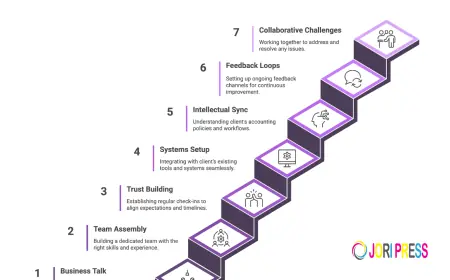Understanding ISO 9001 Certification: A Key to Quality Excellence
In today's competitive business landscape, maintaining consistent quality and customer satisfaction is no longer optional—it’s essential. One way organizations demonstrate their commitment to quality is through ISO 9001 certification. This globally recognized standard helps businesses of all sizes and industries streamline processes, reduce waste, and enhance customer trust. More than just a certificate, it’s a strategic asset that signals professionalism and reliability.
The Foundation: What is ISO 9001 Certification?
ISO 9001 is an international standard that outlines the requirements for a quality management system (QMS). It emphasizes a process-driven approach to documenting and reviewing the structure, responsibilities, and procedures required to achieve effective quality management. Organizations that achieve ISO 9001 certification show they consistently meet customer and regulatory requirements, ensuring a foundation for continual improvement.
Core Benefits: Why ISO 9001 Matters
ISO 9001 certification delivers more than just compliance; it brings tangible business benefits. From improving operational efficiency to boosting customer confidence, this certification can open doors to new markets and partnerships. One significant advantage is the ability to identify inefficiencies and reduce errors, leading to cost savings and better resource management. Companies in the Philippines, for instance, have gained a competitive edge through ISO 9001 certification, showcasing their commitment to international standards and quality excellence.
Implementation Insights: Key Steps in the Certification Process
Achieving ISO 9001 certification involves several critical stages, including gap analysis, documentation, internal audits, and final assessment by a recognized certification body. Leadership involvement, employee training, and a strong focus on customer feedback are essential during this journey. While the process may seem daunting, proper guidance and structured planning make certification an achievable goal for committed organizations.
Long-Term Impact: Sustaining Quality Culture
Securing ISO 9001 certification is not a one-time event—it’s the beginning of a culture shift. Companies must maintain their QMS through regular reviews and continuous improvement initiatives. This long-term commitment fosters innovation, accountability, and a proactive mindset across all levels of the organization, ensuring the standard continues to drive value.
Conclusion: Elevate Your Business with ISO 9001
ISO 9001 certification stands as a symbol of quality, trust, and operational excellence. Whether you’re a startup aiming to scale or an established enterprise looking to optimize, investing in ISO 9001 lays a strong foundation for sustainable growth. It’s not just about meeting a standard—it’s about setting one.
What's Your Reaction?
 Like
0
Like
0
 Dislike
0
Dislike
0
 Love
0
Love
0
 Funny
0
Funny
0
 Angry
0
Angry
0
 Sad
0
Sad
0
 Wow
0
Wow
0

















































